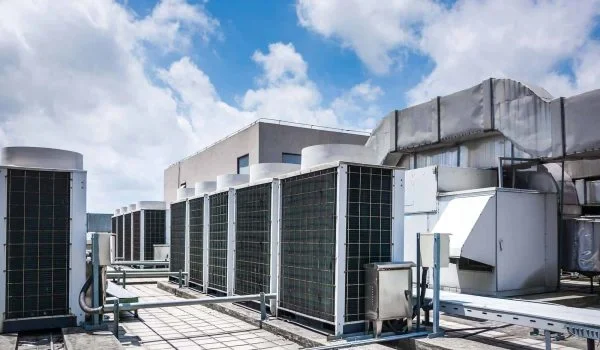HVAC Audit
HVAC System Audit – Optimizing Efficiency, Comfort & Sustainability
A well-optimized Heating, Ventilation, and Air Conditioning (HVAC) system is critical for maintaining energy efficiency, indoor air quality, and occupant comfort in any facility. Over time, HVAC systems may develop inefficiencies, leading to increased energy consumption, higher operational costs, and reduced system lifespan. A comprehensive HVAC audit helps identify performance gaps, optimize energy use, and ensure regulatory compliance while enhancing overall system reliability.
At Bigeta Energy Solutions, we offer in-depth HVAC System Audits to help businesses maximize efficiency, improve operational performance, and reduce environmental impact.
Objectives of an HVAC System Audit
Energy Efficiency Optimization
A detailed energy analysis helps pinpoint areas of energy wastage, such as inefficient chillers, boilers, air handling units (AHUs), ductwork, and control systems. Our audits provide data-driven recommendations to enhance HVAC efficiency and reduce energy costs.
Indoor Air Quality & Comfort Enhancement
Maintaining optimal temperature, humidity, and airflow is essential for occupant health, comfort, and productivity. We assess ventilation systems, filtration mechanisms, and humidity controls to ensure optimal indoor air quality (IAQ).
Reliability & Maintenance Improvement
Aging and poorly maintained HVAC components can lead to frequent breakdowns, inconsistent performance, and high repair costs. Our audit identifies potential failures, preventive maintenance needs, and system upgrades to extend equipment lifespan.
Compliance with Industry Standards
HVAC systems must adhere to ASHRAE, ISO 50001, and other energy efficiency and safety regulations. Our audit ensures your system aligns with these standards, avoiding non-compliance penalties and enhancing sustainability.
Cost & Carbon Footprint Reduction
By optimizing HVAC operations, we help businesses cut down energy bills and lower CO₂ emissions, contributing to their corporate sustainability goals. Implementing smart HVAC controls, high-efficiency motors, and advanced automation systems can further improve energy conservation.
Key Aspects of Our HVAC Audit Process
System Performance Evaluation
➤ Assessment of chillers, cooling towers, air handlers, compressors, and heating units.
➤ Identification of energy inefficiencies in system operations.
➤ Evaluation of thermostat controls, dampers, and airflow balancing.
Mechanical & Electrical Inspection
➤ Condition assessment of motors, fans, ducts, and heat exchangers.
➤ Identification of leakages, pressure drops, and insulation losses.
➤ Verification of electrical connections, wiring safety, and control panel performance.
Energy Consumption Analysis
➤ Detailed energy benchmarking to compare system performance against best practices.
➤ Identification of load imbalances, peak demand issues, and unnecessary power consumption.
➤ Recommendations for energy-efficient HVAC retrofits and automation solutions.
Environmental & Sustainability Assessment
➤ Examination of refrigerant usage and emissions impact.
➤ Implementation of green building standards (LEED, IGBC, BEE Ratings, and ESG initiatives).
➤ Suggestions for renewable energy integration (solar-assisted HVAC, heat recovery, etc.).

Benefits of an HVAC Audit
- Up to 30% Reduction in Energy Costs through system optimization and smart controls.
- Extended Equipment Lifespan by addressing wear and tear before major failures occur.
- Improved Indoor Air Quality & Comfort for enhanced productivity and well-being.
- Compliance with Energy & Safety Standards to avoid penalties and enhance efficiency.
- Lower Carbon Footprint by reducing unnecessary energy wastage and emissions.
